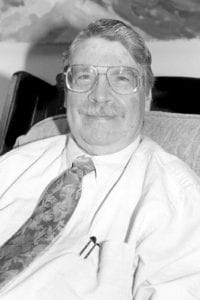By Leah S. Dunaief

Since the news lately has been so grim, I want us to share something of a lighter tone. Have you ever thought about your earliest memories? How far back can you go? Do you remember what your parents looked like when they were younger? Do you recall outings they took you on and how that worked out? What spotlight can you shine back on the farthest points in your life?
The first that comes to my mind is the fun I had sledding in Central Park one day with my dad. The hill at 84th Street and Fifth Avenue looks pretty modest to me now, but then I thought it was alpine. The weather must have been very cold because my dad, who was almost never cold, was wearing his rough woolen grey overcoat. We had a Frequent Flyer long red sled that he carried easily to the park by holding onto one of the runners. He then pulled it over the snow behind us by a rope attached to the handles as we trudged upward.
When we reached the top, he lay down on the sled, his legs dangling over the back, and I climbed on top of him, holding onto his collar with all my strength as he pushed off and we flew at incredible speed down the frozen snow. I can still feel the pellets of ice thrown up by the runners stinging my cheeks and the wind howling alongside as my dad steered among the other children and parents who had also come out to enjoy the white miracle of snow in the city. When we got to the bottom and slowly came to a halt, we laughed triumphantly and tumbled off the sled to go back up and do it all over again.
Later that afternoon, on the way home, my dad motioned for me to get on the sled so that he could pull me the several blocks until we returned to our apartment. Except for narrow shoveled pathways, the streets were hard-packed with snow. I remember telling him that I was too heavy and being puzzled by his laugh. Then his expression turned sober as he assured me that I truly wasn’t too heavy. I did get on and rode home.
I remember my mother teaching me to read. I could recognize the letters from the Alphabet Song she had taught me, but I had been pestering her for more. My dad read newspapers, my mother read reports from work, and I wanted to read, too. So she sat down with me on the side of my bed and explained that just like the Alphabet Song that we sang, if I could put the sounds of the letters together, they spelled out a word. Then she opened a book, and prompted me to sound out each letter of the word she was pointing to. As I did that, I suddenly yelled out the word and understood. It was an epiphany for me. I could read the word. Any word. All the words. I began trying to read everything in sight, again pestering my mother when the sounds didn’t make sense. And to this day, reading is one of the greatest pleasures of my life.
The last early memory I will share with you would probably embarrass my mother if she were here with us. But she isn’t, and I will tell. My brother was almost 14 years older, and there was no one in between. I heard my mother asked more than once by lady friends how it was that after all that time, I arrived. She would reply, “Leah was an accident.”
I thought about that for a while, tried to understand, then finally came up with a satisfactory explanation. It went something like this. One day my mother was crossing Second Avenue, a heavily trafficked road I was familiar with, and was hit by a truck. And there I was.
Little did I know that I had invented binary fission, the means by which amoeba reproduce. After I checked that out with my mother, she never again uttered those words.








